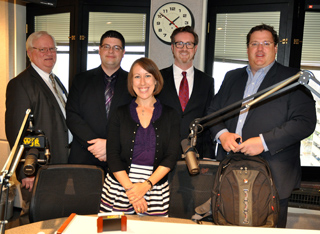This morning the House Financial Liabilities Reform Committee heard testimony on a package of bills, Senate Bills 541-545, that make positive clarifying changes to PA 152 of 2011, the Publicly Funded Health Insurance Contribution Act.
Senate Bill 541 would amend the definition of “medical benefit plan”, which currently excludes benefits provided to individuals retired from a public employer. The bill also would exclude a public employer’s contributions to a fund used for the sole purpose of funding health care benefits available to public employees or elected public officials only upon retirement or separation from service.
Senate Bill 542 would amend the requirements regarding the cap on the dollar limit that a public employer may pay toward health care costs. The bill would also increase the multiplier used to calculate the cap on the total dollar amount that a public employer may pay toward health care costs for individual and spouse coverage;include individual plus one nonspouse dependent coverage within family coverage for cap calculation purposes; include elected officials in calculation of the cap; and exclude from calculation of the cap employees or elected officials who declined coverage.
Senate Bill 543 would amend provisions that allow a public employer to opt for a percentage limit on its medical plan contributions, instead of complying with the dollar amount limits, for a medical benefit plan coverage year. Under this option, a public employer may not pay more than 80% of the total annual costs of all of the medical benefit plans it offers or contributes to for its employees and elected public officials.
Senate Bill 544 would require any contracts or other agreements in effect on September 27, 2011, to conform to contribution limits under the Publicly Funded Health Insurance Contribution Act. Currently, this applies to agreements in effect on September 15, 2011.
Senate Bill 545 would modify a provision that allows a local unit of government to exempt itself from the Act’s requirements by a two-thirds vote of its governing body each year, and requires a two-thirds vote to extend an exemption to a new year. The bill would require an exemption or extension vote to take place before the beginning of the medical benefit plan coverage year.
The League is supportive of these changes as they are important clarifications that will help with PA 152 compliance and interpretation from the Department of Treasury. We are anticipating a vote on this legislation next week.
Samantha Harkins is the Director of State Affairs for the Michigan Municipal League. She can be reached at 517-908-0306 or email at sharkins@mml.org



